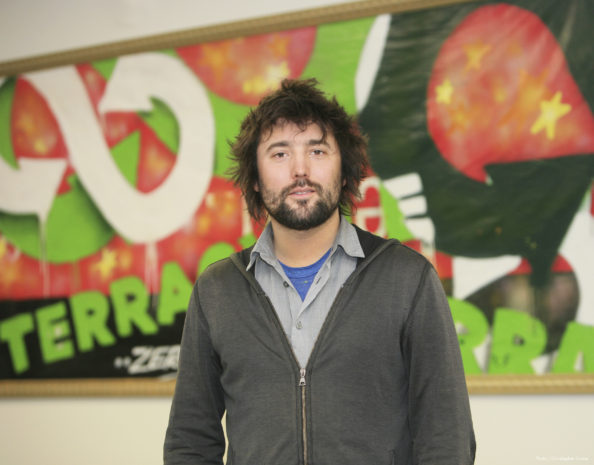Green Energy Entrepreneur Succeeded Despite our Cumbersome Immigration System
Date: February 16, 2017

Tom Szaky, a green energy entrepreneur, credits his immigrant experience with helping him see a business opportunity few others did—and having the motivation to pursue it. Szaky, who was born in Hungary, fled the country at the age of four with his family. Settling in Toronto, Canada, Tom says he and his parents were quickly amazed by the things they saw neighbors casually throwing out in the trash—including fully-functioning televisions, a true luxury in a country as poor as Hungary. Away from the Iron Curtain, young Tom also quickly developed an admiration for the success that self-made entrepreneurs could achieve in the Western world. “The idea of going from nothing to everything in a lifetime,” he says, “was inspiring to me.”
So it’s no surprise that Tom soon began exploring entrepreneurship. By age 14, he had a small but successful graphic design business. Five years later, while a sophomore at Princeton University in the United States, Szaky dropped out of college to run TerraCycle, a New Jersey-based company he founded that recycles materials previously viewed as unrecyclable. What started back then as a one-man initiative to convert worm droppings into plant fertilizer has since transformed into a leading global waste management firm. Today, the Trenton-based firm has operations in 24 countries. It counts more than 60 million users, and recycles and upcycles millions of pounds of waste per month.
Szaky’s firm touches many parts of American life. Terracycle works with thousands of U.S. public schools, allowing students to recycle previously unrecyclable items like glue stick canisters and pen caps. Its receptacles dot the sidewalks of more than 40 American cities—including New Orleans and Los Angeles—collecting cigarette butts TerraCycle will ultimately shred and convert into plastic. The firm, which already generates $20 million in revenues each year, even has ambitions of tackling the last frontier of waste: Disposable diapers, which generate 3.7 million tons of municipal waste each year. TerraCycle already recycles dirty diapers in the Netherlands; it hopes to launch a similar program in the United States in the coming year.
Immigrants have—and always have had—a positive impact on the American economy.
But despite all his success, Szaky has not had a particularly easy time with the U.S. immigration system. To get his own green card, he had to transition between several different visa types—accumulating expense, paperwork, and headaches along the way. As an immigrant entrepreneur, he says he would love to see reform that helped the best and the brightest more easily contribute and stay America creating jobs. To him, this seems like the right thing to do, and good business sense too. “Everybody in America is an immigrant, even if you’ve had a long history in the country,” Szaky says, “Immigrants have—and always have had—a positive impact on the American economy.”
Szaky says he worries the current political tone may discourage entrepreneurial immigrants like himself from coming to America—or building their companies here. The way policy developers towards immigrants in the coming years could even have an impact on TerraCycle, which currently employs 140 people. If current restrictive immigration efforts continue, Szaky says, “I would think about moving and running this business in another country. I don’t know if I’d actually do it, but I’d certainly consider it pretty strongly.”
